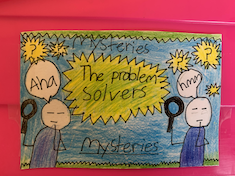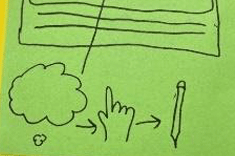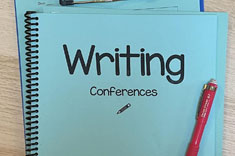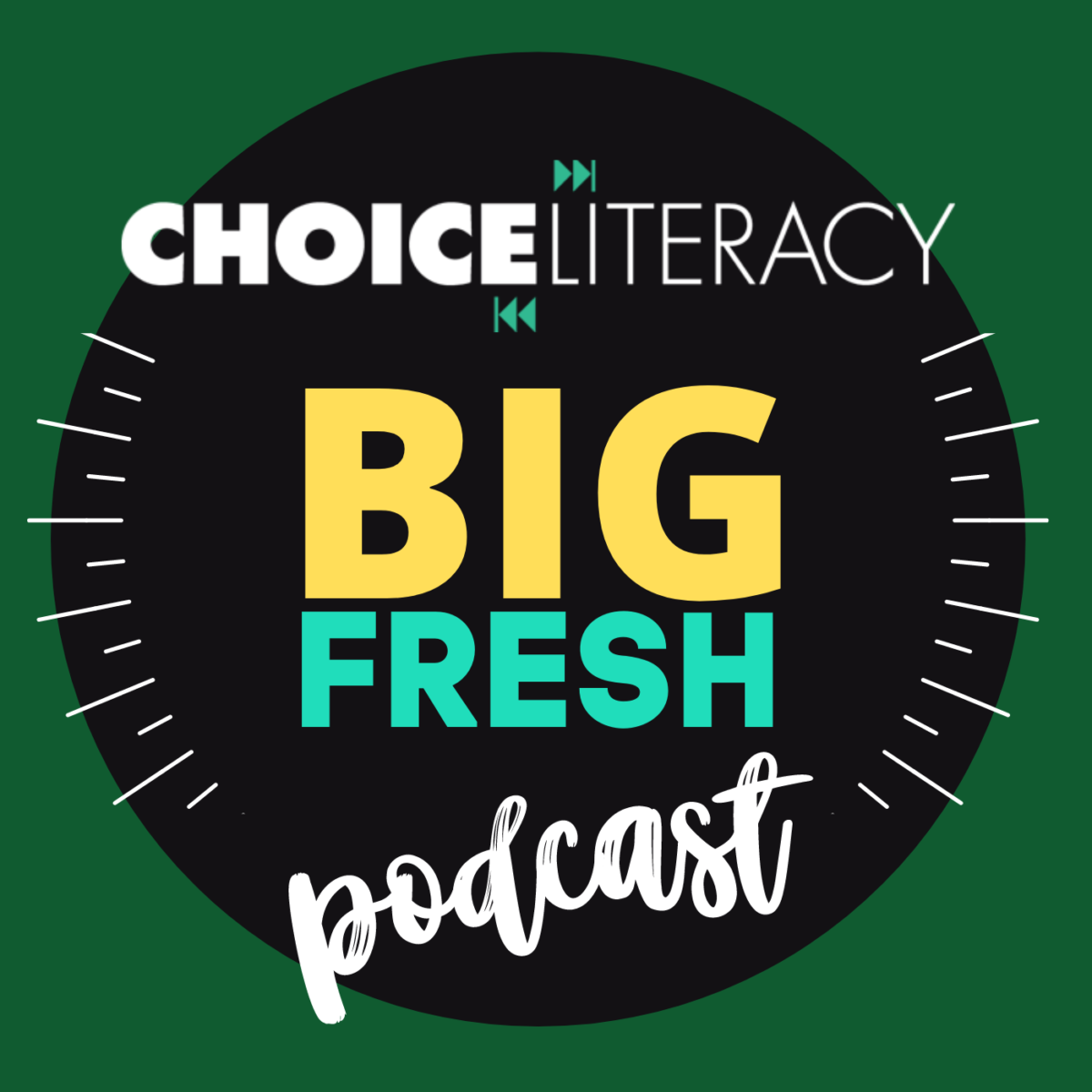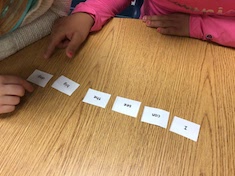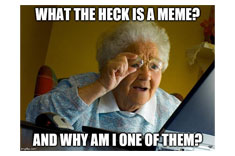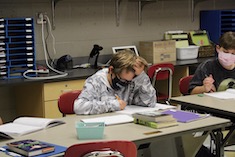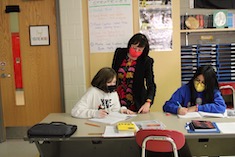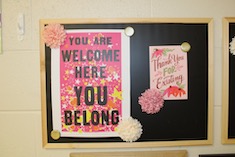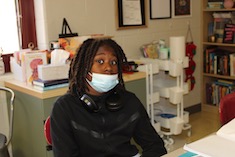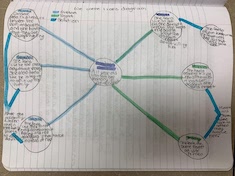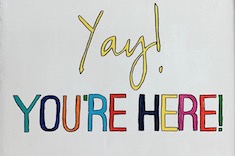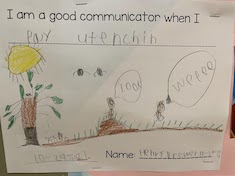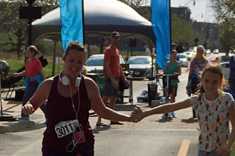Articles
Here is where you’ll find all the latest print features from our contributors. If you’d like to browse specifically by grade level, topic, or contributor, you can use the links in the right sidebar.
Latest Content
The Choice Literacy Book Club Discusses Unbound: The Life + Art of Judith Scott
The Choice Literacy Book Club discusses Unbound: The Life + Art of Judith Scott by Joyce Scott with Brie Spangler and Melissa Sweet.
Feedback to Writers (Part 2) Podcast
Cathy Mere and Ruth Ayres discuss feedback to writers on the podcast.
Celebrating Reading Identities in the Elementary Classroom
Melissa Quimby offers a creative and practical idea to get to know students’ reading identities.
Adding Energy to the Classroom Library
Mandy Robek shares ways to reorganize and revamp your classroom library to energize students as readers.
Feedback to Writers (Part 1) Podcast
Cathy Mere and Ruth Ayres discuss feedback to writers on the podcast.
Making Feedback Visible for Young Writers
Ruth Metcalfe is determined to make teaching points from writing conferences visible for her young multi-language learners. She offers a how-to guide for all teachers to do the same and make the teaching accessible to students even after the conference is over.
Status of the Class for Readers and Writers
Matt Renwick reflects on the importance of building students’ identities as readers and writers and the power of a daily status of the class. Download a template to put this routine in place in your own classroom.
Giving Feedback to Energize Writers
Josie Stewart and Hannah Tills ponder the importance of energizing writers with feedback. They offer tips to ensure feedback uplifts writers.
A Three-Part Conferring Kit
Bitsy Parks shares a simple three-part conferring kit that will position anecdotal notes to guide instruction.
Persuasive Writing Podcast
Cathy Mere and Ruth Ayres discuss reflective practice on the podcast.
The Choice Literacy Book Club Discusses Outside, Inside LeUyen Pham
Cathy Mere and Ruth Ayres discuss reflective practice on the podcast.
Using Images for Rehearsal in Persuasive Writing
Melanie Meehan makes a case for the power of pictures to provide a foothold and access point for students to enter the writing pathway. She shares an example of using images to engage in persuasive writing strategies.
Opinions! Everybody Has One
Leigh Anne Eck shares a tool to help students develop their persuasive voices, build community, and expand their perspectives. Included is a download to put opinion journals to work in your classroom.
Cut-Apart Sentences in Small-Group Reading
Ruth Metcalfe candidly shares the way she tackles the transfer of reading skills with her small group by using cut-apart sentences.
What “Should” Kindergarten Writing Look Like at This Point in the Year?
Melanie Meehan shares insights to emphasize the importance of responding to emergent writers and understanding the progression of young writers.
Choice and Whole-Class Texts Podcast
Cathy Mere and Ruth Ayres discuss reflective practice on the podcast.
What Do You Meme: Logical Fallacies
Gretchen Schroeder teaches her high school students how to notice and combat logical fallacies, a much needed skill due to the fact that most of her students use memes as their primary news source.
Honoring Student Choice in a Teacher-Chosen Text
Tara Barnett and Kate Mills offer practical and engaging choices to students when reading a teacher-selected whole-class text. Download the reading choices survey and a sample pacing calendar to offer your students more choice during a whole-class read.
What Criteria Should We Use When Selecting Whole-Class Texts?
Christy Rush-Levine reminds us that text selection affects students. By shaping a unit of study to contain texts of varying formats and representing a wide variety of characters, students are empowered to develop their own ideas even while reading a whole-class text. Download a diverse text list to deepen a discussion of how family shapes identity.
Tips for Selecting Inclusive Texts
Hannah Tills and Josie Stewart challenge themselves to select more inclusive texts so all students feel as though they belong. They offer six suggestions to help us examine our bookshelves, thinking, and curriculum.
Using Digital Photos to Enhance Learning
Stella Villalba uses photos in the classroom as a powerful tool for critical thinking and reflection. Photos allow students to process complex learning as it happens.
Presence Required
Christy Rush-Levine reminds us that it requires presence to sit alongside young readers and writers. In two examples, we find resilience for meeting students at their points of need and then teaching them as readers and writers.
Welcoming Spaces Podcast
Cathy Mere and Ruth Ayres discuss reflective practice on the podcast.
Keeping Unity
When students feel safe, they are positioned to learn. Julie Cox shares ways to create a learning environment that brings unity to her high school classroom.
What Is Communication? A Mini-Inquiry Project and Booklist
Bitsy Parks leads her first-grade class in a study about communication to strengthen their socially distanced and muffled-by-masks community. Included is a booklist.
Reflective Practice Podcast
Cathy Mere and Ruth Ayres discuss reflective practice on the podcast.
Grow and Innovate with Reflection
Julie Cox makes a case for reflection as an essential tool for growth and innovations. She shares simple and powerful steps that will allow all educators to continue to deepen their instructional practices.
The Reluctant Marathoner: Reflecting on Student Engagement
Gretchen Schroeder uses her reluctance as a marathon runner to reflect on how to encourage more engagement in reading and writing.
The Choice Literacy Book Club Discusses Octopus Stew
The Choice Literacy Book Club discusses Octopus Stew by Eric Velasquez.
Classroom Libraries Podcast
Melanie Meehan and Ruth Ayres discuss classroom libraries.
Browse Content By
Type
Category
- Assessment Tools
- Big Fresh Archives
- Booklists
- Choice Numeracy
- Classroom Design
- Common Core
- Community Building
- Conferring
- Content Literacy
- Digital Literacy
- English Language Learners
- Equity
- Family Relations
- Free Samples
- Guiding Groups
- Leadership
- Literacy Coaches
- Mentor Texts
- Minilessons
- New Teacher Mentors
- Podcasts
- Poetry
- Quote Collections
- Reading Strategies
- Self Care
- Struggling and Striving Learners
- Talking and Listening
- Teacher Study Groups
- Teaching Reading
- Teaching Writing
- Word Study and Vocabulary
Author
- Melissa Quimby
- Nawal Qarooni
- Gwen Blumberg
- Julie Cox
- The Lead Learners
- Hannah Tills
- Josie Stewart
- Ruth Metcalfe
- Mallory Messenger
- Becca Burk
- Jodie Bailey
- Vivian Chen
- Mary Brower
- Tiffany Abbott Fuller
- Stephanie Affinito
- Ruth Ayres
- Leigh Anne Eck
- Heather Fisher
- Shari Frost
- Julie Johnson
- Suzy Kaback
- Gigi McAllister
- Shirl McPhillips
- Melanie Meehan
- Cathy Mere
- Debbie Miller
- Tara Barnett and Kate Mills
- Tammy Mulligan
- Dana Murphy
- Bitsy Parks
- David Pittman
- Brenda Power
- Heather Rader
- Matt Renwick
- Mandy Robek
- Christy Rush-Levine
- Gretchen Schroeder
- Jen Schwanke
- Brian Sepe
- Katherine Sokolowski
- Stella Villalba
- Jennifer Vincent
Grade Level
Choice Literacy Membership
Articles
Get full access to all Choice Literacy article content
Videos
Get full access to all Choice Literacy video content
Courses
Access Choice Literacy course curriculum and training



